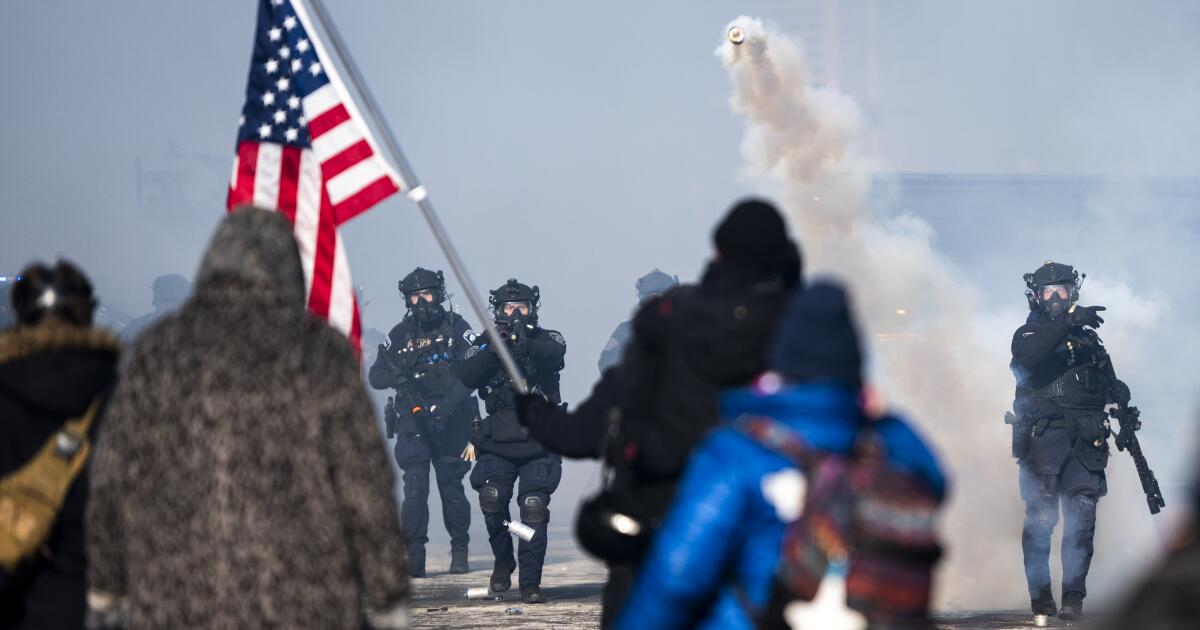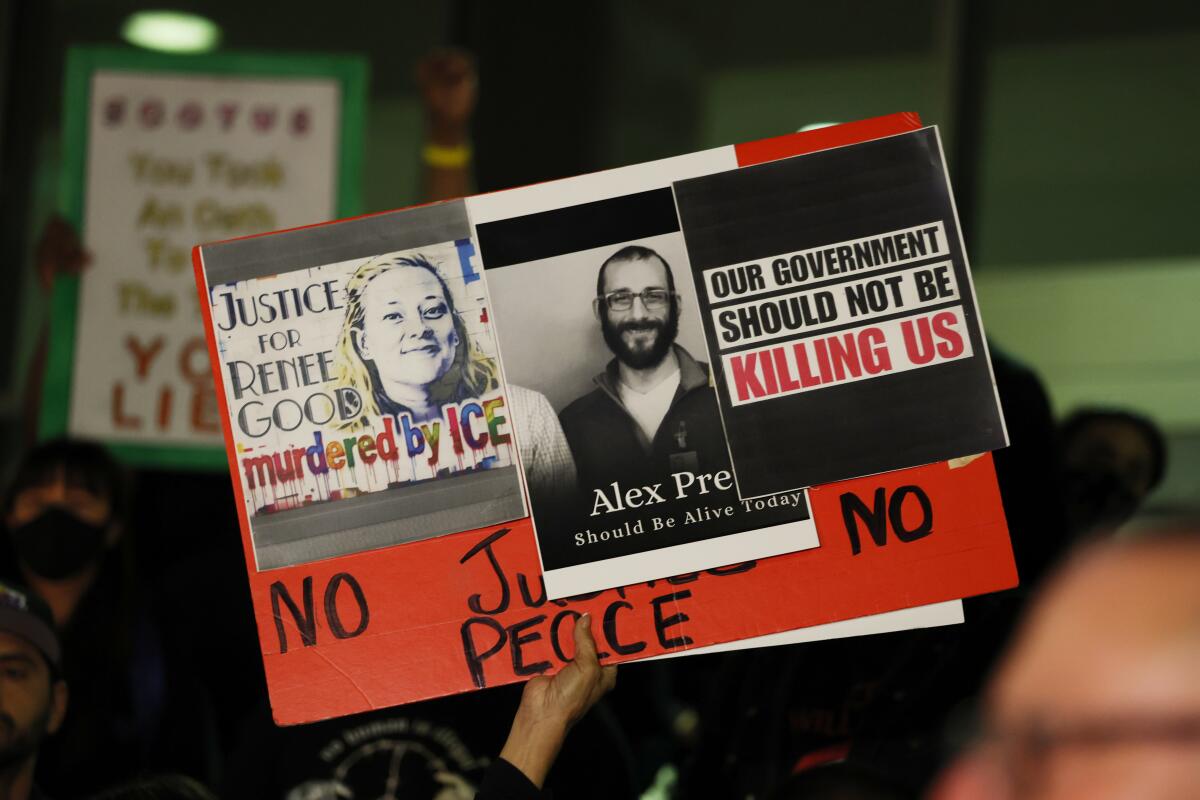Trump sends border advisor Tom Homan to Minnesota as federal immigration tactics face growing scrutiny
As federal immigration tactics face mounting legal and political scrutiny after a U.S. Border Patrol agent fatally shot a Minneapolis man over the weekend, Donald Trump announced Monday he was dispatching his border czar Tom Homan to Minnesota.
Until now, Border Patrol Commander Gregory Bovino has overseen the federal government’s immigration crackdown in Minnesota. But as the Trump administration’s Department of Homeland Security faces widespread criticism for its aggressive tactics since it launched Operation Metro Surge in December, Trump signaled Monday that he could be shifting strategy as he deploys Homan to the region.
“He has not been involved in that area, but knows and likes many of the people there,” Trump said of Homan on TruthSocial. “Tom is tough but fair, and will report directly to me.”
Trump’s deployment of Homan comes as a federal judge hears arguments Monday on whether to temporarily halt the Trump administration’s immigration enforcement in Minnesota. Meanwhile, Democratic senators plan to oppose a funding bill for DHS, raising the possibility of a partial government shutdown, and a small but growing number of Republicans have joined Democratic calls for a thorough investigation into the killing of Alex Pretti
The Department of Homeland Security said Pretti, a 37-year-old intensive care unit nurse, approached federal officers on the street Saturday morning with a 9 mm semi-automatic handgun and “violently resisted” when officers tried to disarm him. But cellphone videos recorded by eye witnesses contradict that account.
According to videos taken on the scene, Pretti was holding a phone, not a handgun, when he stepped in front of a federal agent who was targeting a woman with pepper spray. Federal agents pulled him to the ground and shot him.
Pretti is the second U.S. citizen in Minneapolis to be killed by immigration officers this month. On Jan. 7, Renee Good, a 37-year-old mother, was shot in the head by an Immigration and Customs Enforcement officer.
Secretary of Homeland Security Kristi Noem raised criticism this weekend when she said that her agency would lead the investigation into Pretti’s killing.
After federal officials denied Minnesota state investigators access to the shooting scene in South Minneapolis, local and state officials in Minnesota accused DHS of mishandling evidence. Late Saturday, the Minnesota Bureau of Criminal Apprehension asked a federal court to block Homeland Security and Justice Department officials from destroying or concealing evidence.
It is not immediately clear how Bovino’s role could change as Homan arrives in Minneapolis.
Noem, who has backed Bovino’s aggressive tactics, said Monday it was “good news” that Homan was going to Minneapolis.
“I have worked closely with Tom over the last year and he has been a major asset to our team,” Noem wrote on X. Homan’s “experience and insight,” she said, would “help us to remove even more public safety threats and violent criminal illegal aliens” off Minneapolis streets.
But some Democrats in Minnesota oppose sending Homan to Minnesota. Minneapolis City Council member Soren Stevenson said the move would only aggravate tension.
“They are losing the battle in people’s minds,” Stevenson told CNN, noting that people could see video evidence contradict federal accounts of border patrol agents’ actions.
“They’re losing this narrative battle, and so he’s sending in his top guard,” Stevenson added. “And really, it’s escalating, because we just want to be left alone. The chaos in our community is coming from ICE. It’s coming from this invasion that we’re under … and it’s got to stop.”
In a short interview with The Wall Street Journal Sunday, Trump criticized Pretti for carrying a gun during protest activity.
“I don’t like any shooting. I don’t like it,” Trump said. “But I don’t like it when somebody goes into a protest and he’s got a very powerful, fully loaded gun with two magazines loaded up with bullets also. That doesn’t play good either.”
The President declined to comment on whether the agent who shot Pretti had done the right thing. “We’re looking,” Trump said when pressed. “We’re reviewing everything and will come out with a determination.”
Democratic officials, including Minnesota Gov. Tim Walz and Minneapolis Mayor Jacob Frey, have called on federal immigration officers to leave Minneapolis. On Sunday, Trump suggested they could withdraw, but he did not give a timeline.
“At some point we will leave,” the president said. “They’ve done a phenomenal job.”



